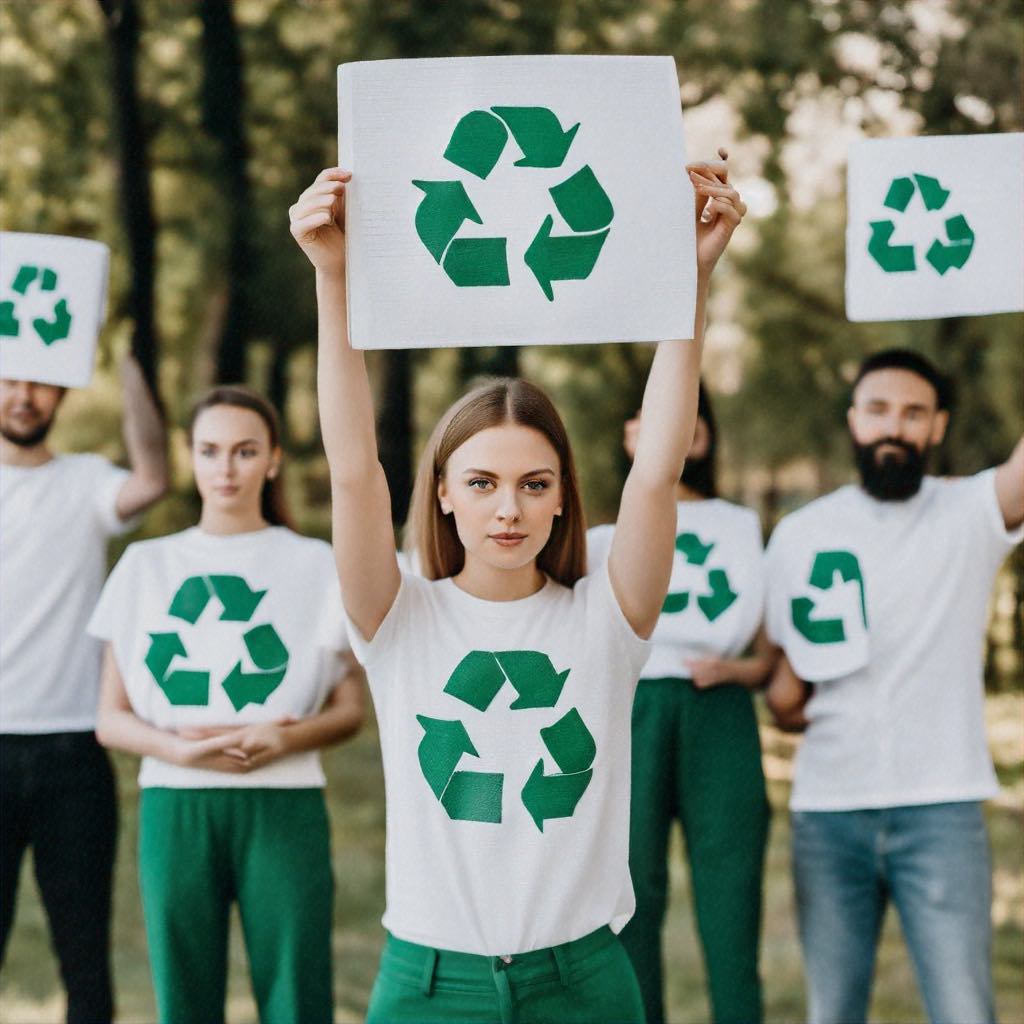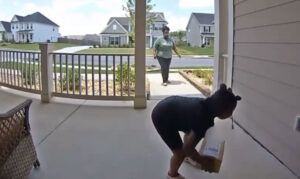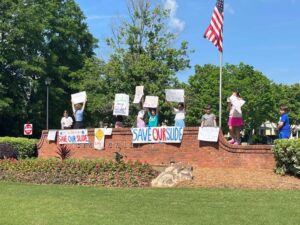By LORI KIRKLAND, Special to The Citizen
Styrofoam cups and containers, a couple of box springs, an old king-size mattress, and two gallons of old paint are all quietly nestled in a corner of my garage patiently waiting for me to find time and energy to locate a recycling drop-off location and take them there.
Although recycling is considered the final step in the waste management hierarchy: Refuse, Reduce, Reuse, Repurpose, THEN Recycle, this action has become an indispensable practice for households in effectively helping manage waste in their areas.
By diverting reusable materials away from landfills, waterways, and oceans, recycling plays a vital role in reducing waste accumulation in our environment.
Sadly, according to the EPA, only 32% of all disposable waste is currently being diverted from landfills through recycling initiatives within the United States. (National Overview: Facts and Figures on Materials, Wastes and Recycling | US EPA, 2023).
Recycling’s main purpose is to facilitate the reintroduction of product components back into the manufacturing cycle, reducing the reliance on virgin raw materials.
However, this closed-loop system relies heavily on the presence of robust recycling programs at the state, city, and community levels. Regrettably, many small towns and suburban areas lack any sort of comprehensive recycling infrastructure.
This leads to a significant portion of recyclable materials being excluded from this recovery process and puts further strain on the extraction of natural resources.
I live just beyond the Fayetteville city limits near the hospital and have witnessed firsthand the discontinuation of recycling pick-up services by the two waste disposal companies servicing our area.
The absence of a dedicated recycling drop-off location within the county has caused some sizable frustrations within our community. While various non-profit organizations, volunteer groups, and collaborations do welcome specific recyclable items, none offer a fully comprehensive solution.
For example, the Southern Conservation Trust, in collaboration with Ripple Glass from Kansas City, MO, has helped establish two glass recycling drop-off locations in the county, one at the SCT Education Annex Center.
The second glass recycling bin is located at the transfer station on First Manassas Road, which also only accepts cardboard and scrap metal, further limiting county residents’ recycling options.
Moreover, while the McIntosh Trail and Boy Scout Troop 211 recycling facilities cater to a wide array of items, access is restricted to Peachtree City residents. This limitation of access not only engenders considerable frustration and inconvenience in my daily life as I try to minimize my carbon and waste footprint but also poses a significant and similar challenge for many county residents.
A number of innovative companies have formed whose sole mission is to find ways to collect and repurpose challenging materials such as plastics, clothing, and tires.
For example, a company based in Mulliken, MI, has embarked on the transformation of milk jugs into eco-friendly park benches: “How milk jugs are being turned into park benches”. Additionally, several companies are specializing in crafting comfortable and affordable shoes exclusively from recycled materials: Recycled Material Shoes List, while others are venturing into the realm of recycled material yoga wear.
Amidst the growing emphasis on recycling, there has also been a surge in the emergence of organizations and non-profits dedicated to addressing the plastic pollution crisis plaguing the planet’s oceans and rivers
Two notable companies, 4Ocean, and The Ocean Cleanup, have implemented distinct strategies to combat the plastic waste epidemic.
4Ocean primarily focuses on the cleanup of both marine and freshwater shorelines, reefs, and estuaries.
The Ocean Cleanup is focused on the monumental task of removing the Pacific Garbage Patch, a vast collection of garbage and debris that is twice the size of Texas.
This company is also actively working within the deltas of some of the world’s most polluted rivers to intercept plastic waste before it reaches the ocean, which will help prevent further accumulation of plastics in marine environments. Since its inception in 2013, The Ocean Cleanup has removed over ten million kilograms of trash.
As individuals, households, and communities, we have the power to support and assist companies engaged in innovative recycling practices right from our homes by adopting mindful waste management habits.
Examples are as follows:
• Opting for alternative to-go containers and utensil practices not only saves money in the long term but also aids in reducing clutter and waste within our kitchens.
• Prioritizing thrift and consignment stores for shopping presents opportunities to acquire home and personal essentials at a fraction of the cost of conventional department store items.
• Choosing eco-friendly alternatives for household cleaning products, such as laundry detergent, dish soap, and personal hygiene items, plays a significant role in curbing plastic waste and promotes sustainability, and many of these products can now be found at our local grocery store.
By making conscious choices in our daily routines, we can actively support the mission of companies and organizations striving to make a positive impact on environmental conservation through recycling and repurposing programs.
As I researched for this article I collected as much information as I could on the recycling services offered in Fayette County. This is to provide easy access to anyone interested in learning more about recycling specifically within our community.
Fayette County Recycling Resource List
• https://www.sctlandtrust.org/glass-recycling
• https://fayettecountyga.gov/solid_waste/transfer-station
• https://peachtree-city.org/165/Recycling-Opportunities
• https://peachtree-city.org/773/Garbage-and-Recycling
• https://gflenv.com/our-services/for-home/residential-solid-waste/recycling-collection/acceptable-materials/
• https://keeppeachtreecitybeautiful.com/ptc-recycling/
• https://www.tyronega.gov/sanitation
https://www.homedepot.com/l/Peachtree-City/GA/Peachtree-City/30269/164
• https://www.homedepot.com/l/Fayetteville-GA/GA/Fayetteville/30214/127
• https://www.bestbuy.com/site/services/recycling/pcmcat149900050025.c?id=pcmcat149900050025
• https://www.fayetteville-ga.gov/Calendar.aspx?EID=1037&month=4&year=2024&day=27&calType=0
References:
National Overview: Facts and figures on materials, wastes, and recycling | US EPA. (2023, November 22). US EPA. https://www.epa.gov/facts-and-figures-about-materials-waste-and-recycling/national-overview-facts-and-figures-materials
— Author Lori Kirkland lives in Fayetteville, Ga.












Leave a Comment
You must be logged in to post a comment.